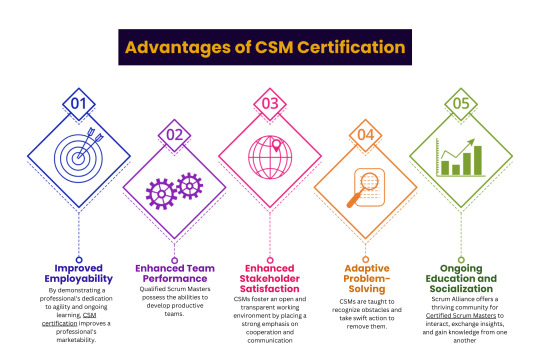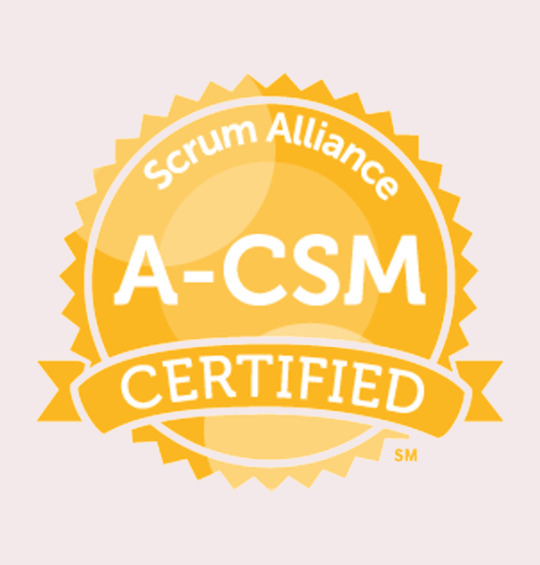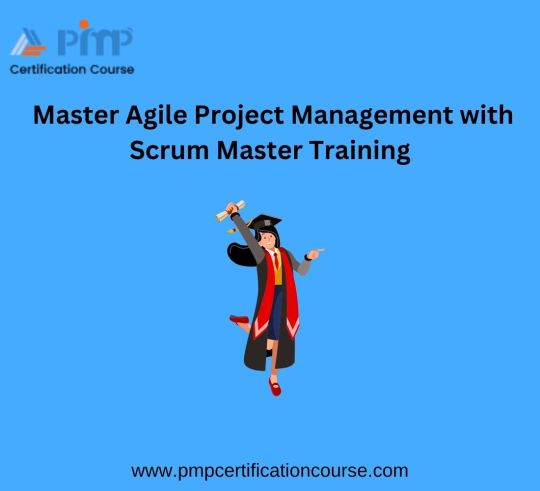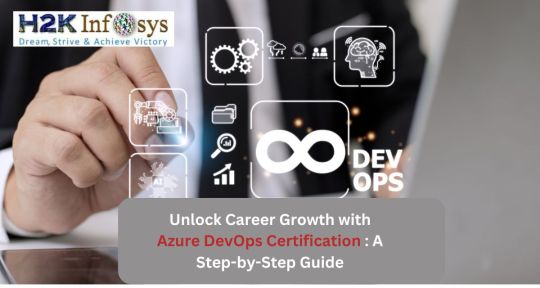#certified scrum master training and certification
Explore tagged Tumblr posts
Text
#scrum certification course#scrum professional certification#scrum master online training#certified scrum master training#certified scrum master exam
0 notes
Text
Advanced Certified Scrum Master (A-CSM) Training | Learnovative
Enhance your Scrum Master skills with Advanced Certified Scrum Master (A-CSM) training from Learnovative. Our A-CSM course is designed to help you master advanced Scrum practices and methodologies, preparing you to take the next step in your Agile journey. Enroll now and become an expert in Agile project management!
The Advanced Certified Scrum Master (A-CSM) Training provided by Learnovative is a highly regarded Scrum certification offered by Scrum Alliance. As an authorized Registered Education Provider (REP), Learnovative conducts A-CSM Training in both physical classroom and live virtual modes. Our physical classroom training is available in major cities across India, including Bengaluru, Hyderabad, Chennai, Delhi, Kolkata, Mumbai, Pune, Gurugram, and Kochi.
call now : 099499 94949
#A-CSM Training#Certified Scrum Master#Scrum Master Certification#Agile Training#Learnovative#CSM#CSPO#ACSM#ACSPO#CSMtraininginHyderabad#CSMtrainingcoursesinHyderabad#ScrumMastertraininginHyderabad#ScrumMastercertificationinHyderabad#CertifiedScrumMastercertificationinHyderabad#CertifiedScrumMastercertificationtraininginHyderabad#CSMcertificationinHyderabad#CertifiedScrumTrainerinHyderabad#CertifiedAgileScrumTrainerinHyderabad#CertifiedEnterpriseCoachinHyderabad#CertifiedTeamCoachforCSMinHyderabad#CertifiedTeamCoach#CSPOinHyderabad
0 notes
Text
Unleash Your Potential: Elevate Your Career with Online Agile and Scrum Training Courses!

The term Agile is used to describe a general framework for handling software development. The different Agile methods focus on teamwork, customer collaboration, and the ability to respond to change quickly. On the other hand, Scrum is one of many Agile processes. It is a framework that is used to implement Agile development.
If you want to recognize the principles of Agile practices, its tools, techniques, and various methodologies, signing up for Agile and Scrum training courses online is right for you.
#Agile and Scrum training courses online#Product management knowledge library#how to become product manager#product manager skills#python certification course usa#agile project management courses Online#certified scrum master courses online#Kanban Training Certification Courses#Scrum Courses with Kanban Training#best online software development courses
0 notes
Text

"Embark on the journey of Agile mastery with the Certified Scrum Master credential! 🚀 Unleash your leadership potential, foster high-performing teams, and navigate the dynamic landscape of project management with confidence. 🌐✨ Join the league of Certified Scrum Masters and embrace a culture of continuous improvement. #CSM #AgileLeadership #ScrumMasterJourney
0 notes
Text
Scrum Master's Secret Weapon: Enhance Leadership with Jira Assistance

In Agile project management, the Scrum Master plays a pivotal role. They are the leaders who guide teams toward success, ensuring that Agile principles and practices are followed effectively. While the Scrum Master's responsibilities are diverse and demanding, one tool stands out as their secret weapon: Jira. This blog will explore how Jira can enhance a Scrum Master assistant capabilities and contribute to Agile project success.
The Scrum Master's Crucial Role
Before diving into the power of Jira, let's briefly revisit the role of a Scrum Master. Scrum Masters are not traditional project managers; they are servant leaders who facilitate and empower their teams. Their responsibilities include:
Facilitating Scrum Events: Scrum Masters organise and lead key events like Sprint Planning, Daily Standups, Sprint Reviews, and Sprint Retrospectives. These events keep the team focused, aligned, and continuously improving.
Removing Obstacles: Scrum Masters identify and eliminate impediments that hinder the team's progress. This can range from resolving technical issues to addressing interpersonal conflicts.
Coaching and Mentoring: Scrum Masters coach team members and stakeholders on Agile principles and practices, helping them understand and embrace the Agile mindset.
Shielding the Team: They protect the team from external disruptions and excessive demands, allowing team members to focus on their work.
Continuous Improvement: Scrum Masters facilitate retrospectives to help the team reflect on their processes and find ways to improve continuously.
Jira as a Scrum Master's Ally
Now, let's explore how Jira can assist Scrum Masters in their leadership journey:
Efficient Backlog Management: Jira provides a centralised platform for managing the product backlog. Scrum Masters can use Jira to keep the backlog organised, ensure that it reflects the priorities of the Product Owner, and make it easily accessible to the team. This clarity enhances the Scrum Master's ability to facilitate Sprint Planning effectively.
Visibility into Progress: Jira's visual boards, such as Kanban or Scrum boards, offer real-time visibility into the progress of tasks during a sprint. Scrum Masters can use these boards during Daily Standups to help the team stay on track and identify any blockers or delays.
Dependency Tracking: Managing dependencies between tasks can be challenging but is crucial for successful Agile delivery. Jira allows Scrum Masters to map dependencies, enabling them to address potential roadblocks and ensure smooth progress proactively.
Custom Reporting: Jira offers robust reporting capabilities. Scrum Masters can use these reports to track key metrics like velocity, burn down, and sprint progress. These insights facilitate data-driven discussions during Sprint Reviews and Retrospectives, enabling the team to identify areas for improvement.
Automated Reminders: Jira can be configured to send automated reminders and notifications for upcoming events and deadlines. Scrum Masters can use this feature to ensure that the team is aware of and prepared for important Scrum events.
Issue Tracking and Escalation: When issues or impediments arise, Scrum Masters can use Jira to log and track them. Jira's customise workflows allow for creating issue escalation processes, ensuring that problems are addressed promptly.
Collaboration and Documentation: Jira integrates seamlessly with Confluence, Atlassian's collaboration platform. Scrum Masters can use Confluence to document meeting notes, action items, and project documentation. This integration streamlines knowledge-sharing and documentation efforts.
Best Practices for Scrum Masters Using Jira
To maximise the benefits of Jira as a Scrum Master's secret weapon, consider the following best practices:
Master Jira: Invest time in becoming proficient with Jira's features and functionalities. The more you know, the more effectively you can leverage it to support your team.
Customisation: Tailor Jira to fit your team's unique needs. Customise workflows, issue types, and boards to align with your Agile processes.
Training and Support: Provide training and support to your team members to ensure they can navigate and use Jira effectively. A well-informed team is more likely to collaborate efficiently within the tool.
Regular Reviews: Continuously review and adapt your Jira setup to reflect changes in your project's needs. Regularly solicit feedback from your team to identify opportunities for improvement.
Documentation: Use Confluence with Jira to maintain clear and up-to-date documentation. This ensures that critical information and decisions are readily accessible to all stakeholders.
The Scrum Master's Secret to Success
In today's fast-paced business environment, Agile project management is necessary for organisations seeking to deliver value rapidly and respond to change effectively. Within the Agile framework, the Scrum Master plays a pivotal role as a servant-leader, guiding teams toward success. With its powerful features for backlog management, progress tracking, dependency management, and reporting, Jira can serve as the Scrum Master's secret weapon.
By mastering Jira and leveraging its capabilities, Scrum Masters can enhance their leadership skills, streamline Agile processes, and drive project success. Jira becomes a tool and an extension of the Scrum Master's expertise, enabling them to excel in their role and lead their teams to Agile excellence.
At Quirk Consulting, we understand the importance of Agile leadership and the role of tools like Jira in enhancing the Scrum Master's effectiveness. If you're ready to elevate your Agile leadership skills and unlock the full potential of tools like Jira, contact us today. Our experienced Agile coaches are here to guide you on your leadership journey, ensuring you can navigate Agile project management's complexities with confidence and expertise.
#scrum master assistant#atlassian jira training#atlassian training#certified enterprise coach#jira and confluence training#consulting#consultant#atlassian classes#scrum master agile coach#scrum#scrum master#scrum master certification
0 notes
Text

The Agile Scrum Master (ASM) Training & Certification course provides comprehensive training in Agile methodologies and Scrum practices. Participants will gain a deep understanding of Agile principles, Scrum framework, and the role of a Scrum Master. This program equips individuals with the skills to effectively lead Agile teams, facilitate Scrum ceremonies, and drive project success. By earning the Agile Scrum Master certification, participants can validate their expertise and demonstrate their commitment to Agile project management. Whether you are new to Agile or seeking to enhance your skills, this course offers valuable insights and industry-recognized certifications.
0 notes
Text
Demystifying CSPO Roles and Responsibilities
Understand the key duties and responsibilities of a Certified Scrum Product Owner for effective agile management.
FAQs
Is prior experience required to enroll in CSPO training?
No prior experience is necessary to enroll in CSPO training. However, having some familiarity with agile principles and project management concepts can be beneficial.
How long does it take to complete CSPO training?
CSPO training typically spans two days, during which participants engage in immersive learning activities and exercises to gain a comprehensive understanding of Scrum principles.
Is CSPO certification recognized globally?
Yes, CSPO certification is globally recognized and valued by organizations across various industries seeking professionals proficient in agile project management practices.
Can I pursue CSPO training if I’m not from a technical background?
Absolutely! CSPO training is suitable for professionals from diverse backgrounds, including business analysts, product managers, marketers, and entrepreneurs.
What are the career prospects after obtaining CSPO certification?
CSPO certification opens doors to various career opportunities, including product owner, project manager, Scrum master, agile coach, and agile consultant roles.
2 notes
·
View notes
Text
Demystifying the Different Types of Agile Certifications
A Beginner's Guide
Are you new to the world of Agile methodologies and wondering what all the talk about certifications is? Look no further, as this beginner's guide will break down the different types of Agile certifications and help you understand the benefits and differences between each. From Scrum and Kanban to SAF e and PMI-ACP, we will demystify the jargon and give you a clear understanding of how each certification can enhance your career and benefit your organization. Whether you're a project
Breaking Down the Different Types of Agile Certifications
Agile certifications are becoming increasingly popular in the business world as more and more companies are adopting agile methodologies With so many different types of certifications available, it can be overwhelming trying to decide which one is right for you or your team In this comprehensive guide, we will break down the different types of agile certifications and help you understand their benefits and requirements.
Firstly, let's define what agile training certification actually means Agile training refers to a specific type of education that teaches individuals about various agile practices, principles, and frameworks By obtaining an agile certification, professionals can demonstrate their knowledge and expertise in these areas.
There are several different types of agile certifications available depending on the specific methodology or framework being used The most common ones include Scrum Master Certification (SMC, Certified Scrum Product Owner (CSPO, Agile Certified Practitioner (ACP, Lean Six Sigma Green Belt (LSSGB and Professional Scrum Master )
Each certification has its own unique set of requirements such as attending a certain number of hours in training sessions or passing an exam with a minimum score It is important to carefully research each certification before deciding which one best fits your needs and goals.
The benefits of obtaining an agile certification are numerous First and foremost, it demonstrates to employers that you have a solid understanding of the principles behind agility and possess valuable skills that can contribute to successful project execution It also sets you apart from other candidates when applying for jobs or promotions within your company.
Additionally, getting certified shows commitment to continuous learning and improvement in your career field which is highly valued by employers Having an official recognition from a reputable organization also adds credibility to your resume which can lead to higher salary potential.
In conclusion, there are many factors to consider when choosing the right type of agile certification for yourself or your team members including cost, time commitment required for completing the program, specific skill-set needs within your industry etc. It is important to carefully research and understand each certification before making a decision The benefits of being certified can greatly impact your career growth and open up new opportunities With this comprehensive guide, we hope you have gained a better understanding of the different types of agile certifications available and can make an informed decision in your pursuit towards becoming an expert in agile methodologies
2 notes
·
View notes
Text
0 notes
Text

Advanced Certified Scrum Master (A-CSM) Training | Learnovative
Enhance your Scrum Master skills with Advanced Certified Scrum Master (A-CSM) training from Learnovative. Our A-CSM course is designed to help you master advanced Scrum practices and methodologies, preparing you to take the next step in your Agile journey. Enroll now and become an expert in Agile project management!
call now : 099499 94949
#A-CSM Training#Certified Scrum Master#Scrum Master Certification#Agile Training#Learnovative#CSM#CSPO#ACSM#ACSPO#CSMtraininginHyderabad#CSMtrainingcoursesinHyderabad#ScrumMastertraininginHyderabad#ScrumMastercertificationinHyderabad#CertifiedScrumMastercertificationinHyderabad#CertifiedScrumMastercertificationtraininginHyderabad#CSMcertificationinHyderabad#CertifiedScrumTrainerinHyderabad#CertifiedAgileScrumTrainerinHyderabad#CertifiedEnterpriseCoachinHyderabad#CertifiedTeamCoachforCSMinHyderabad#CertifiedTeamCoach#CSPOinHyderabad
0 notes
Text
youtube
SCRUMstudy™ is the global accreditation body for Scrum and Agile certifications. It has authored the SBOK® Guide as a comprehensive guide to deliver successful projects using Scrum. SCRUMstudy™ works through its large global partner network of Authorized Training Providers (A.T.P.s) to deliver training and certifications. Important certifications provided by SCRUMstudy™ include Scrum Fundamentals Certified(SFC™), Scrum Developer Certified (SDC®), Scrum Master Certified (SMC®), Scaled Scrum Master Certified (SSMC™), SCRUMstudy Agile Master Certified (SAMC™), Scrum Product Owner Certified (SPOC®), Scaled Scrum Product Owner Certified (SSPOC™) and Expert Scrum Master Certified (ESMC™)
2 notes
·
View notes
Text
What is CSM, and Why is it Important for Your Career?
One of the most recognized certifications that can boost your career is the Certified Scrum Master (CSM) certification. But what exactly is CSM, and how can it elevate your career? This article will explore the significance of CSM and why investing in this certification from a reputable provider like Merit Global Training can make all the difference in your professional development.

0 notes
Text
Scrum Master Course in India | Scrum Master Training
Scrum Master Crash Course: A Beginner’s Guide to Agile Leadership
The Scrum Master plays a crucial role in ensuring the success of this process by guiding teams, removing obstacles, and fostering a culture of continuous improvement. If you're new to Agile and want to understand the fundamentals of being a Scrum Master Classes, this crash course is for you
What Is a Scrum Master?
A Scrum Master is not a traditional project manager but rather a servant leader who empowers Agile teams. Their primary responsibilities include:
Facilitating Scrum events (daily stand-ups, sprint planning, sprint reviews, and retrospectives).
Removing roadblocks that hinder the team’s progress.
Coaching team members on Agile best practices.
Encouraging collaboration between stakeholders Scrum Master Online Training
Ensuring adherence to Scrum principles while fostering adaptability.
By effectively guiding the team, a Scrum Master enhances productivity and ensures that Agile values are upheld.

Understanding the Scrum Framework
To be an effective Scrum Master, it's essential to understand the Scrum framework, which consists of three key elements:
Scrum Roles
Scrum Master – Facilitates the Scrum process and removes impediments.
Product Owner – Represents the customer and defines the product backlog.
Development Team – Cross-functional members who build the product incrementally.
Scrum Events
Sprint – A time-boxed iteration (typically 1-4 weeks) where work is completed.
Daily Scrum (Stand-up) – A 15-minute meeting where the team discusses progress and roadblocks.
Sprint Planning – A meeting where the team decides what work will be completed during the sprint.
Sprint Review – A session to showcase completed work to stakeholders.
Sprint Retrospective – A reflection meeting to improve processes for the next sprint.
Scrum Artifacts
Product Backlog – A prioritized list of tasks and features Scrum Master Course in Hyderabad
Sprint Backlog – A subset of the product backlog chosen for the current sprint.
Increment – The completed work at the end of each sprint.
Essential Skills for a Scrum Master
To be a successful Scrum Master, you need a mix of technical and soft skills, including:
Facilitation & Communication – Ensuring smooth collaboration among team members and stakeholders.
Problem-Solving – Identifying and addressing obstacles that slow the team down.
Servant Leadership – Empowering the team rather than commanding them.
Agile Mindset – Adapting to change and fostering continuous improvement.
Common Challenges and How to Overcome Them
Resistance to Change: Some teams struggle with adopting Agile. A Scrum Master can ease the transition by demonstrating small wins and educating stakeholders.
Lack of Clarity in Requirements: Encourage regular collaboration with the Product Owner to refine the backlog.
Unrealistic Deadlines: Help teams set achievable sprint goals to prevent burnout.
Getting Started as a Scrum Master
If you're looking to become a Scrum Master, here’s how to start:
Learn Scrum Fundamentals – Read the Scrum Guide and explore Agile resources.
Gain Hands-on Experience ��� Join an Agile team or take part in simulated Scrum projects.
Get Certified – Certifications like Certified Scrum Master (CSM) or Professional Scrum Master (PSM) boost credibility.
Keep Learning – Agile is constantly evolving, so stay updated with new trends and practices.
Conclusion
A Scrum Master plays a vital role in guiding Agileteams toward success. By mastering the Scrum framework, honing leadership skills, and continuously improving, you can help teams achieve their goals efficiently. Whether you're transitioning from another role or starting fresh, embracing Agile principles will set you on the path to becoming an effective Scrum Master.
Visualpath is the Leading and Best Software Online Training Institute in Hyderabad.
For More Information about Scrum Master Training
Contact Call/WhatsApp: +91-7032290546
Visit: https://www.visualpath.in/online-scrum-master-course.html
#Scrum Master Course#Scrum Master Training#Scrum Master Course in Hyderabad#Scrum Master Certification Training#Scrum Master Training in Hyderabad#Scrum Master Online Training#Scrum Master Certification Online#Scrum Master Classes#Scrum Master Course in Bangalore#Scrum Master Course in Chennai#Scrum Master Course in India#Scrum Master Training in Bangalore
0 notes
Text

Join #Visualpath#scrummaster Online Training, providing hands-on experience through real-time projects. Learn from certified trainers with over a decade of industry and develop practical skills to excel in #scrummastercourse. Our comprehensive training is available worldwide, including in Hyderabad, the USA, UK, Canada, Dubai, Australia, and more. Gain in-depth knowledge and industry-recognized certification to advance your career. Enroll in our and stay ahead in the IT industry. Book a free demo today Call: +91-7032290546
Whatsapp: https://wa.me/c/917032290546
Visit our Blog: https://visualpathblogs.com/
Visit: https://www.visualpath.in/online-scrum-master-course.html
#scrummaster#agilecoaching#scrum#agile#AgileMindset#scrumleadership#scrumteam#agiletransformation#ScrumCommunity#scrummastercertification#scrublife#agileframework#ScrumGuide#ScrumAlliance#agilescrum#agileleadership#agilemindsetshift#scrumlifecycle#AgileInnovation#AgileMindset
#Scrum Master Course#Scrum Master Training#Scrum Master Course in Hyderabad#Scrum Master Training in Hyderabad#Scrum Master Online Training#Scrum Master Certification Online#Scrum Master Classes#Scrum Master Course in Bangalore
0 notes
Text

Master Agile Project Management with Scrum Master Training
Gain the skills to lead Agile teams with Scrum Master Training. This course covers Scrum fundamentals, team collaboration, and iterative project delivery, preparing you for a successful career in Agile project management. Whether you're new to Scrum or looking to enhance your expertise, this training provides a globally recognized certification. Enroll today and take the next step in becoming a certified Scrum Master!
0 notes
Text
Unlock Career Growth with Azure DevOps Certification: A Step-by-Step Guide

Gain expertise in Azure DevOps with our comprehensive certification guide. Learn Azure DevOps online with hands-on training for career growth.
Introduction: Why Azure DevOps Certification Matters
The demand for DevOps professionals is skyrocketing as companies move towards cloud-based solutions. Microsoft’s Azure DevOps Certification offers a structured approach to mastering DevOps methodologies, making it a game-changer for IT professionals. Whether you aim to learn Azure DevOps from scratch or enhance your skills with DevOps Training Online, this guide will walk you through the Azure DevOps course, its benefits, and the career opportunities it unlocks.
What is Azure DevOps?
Azure DevOps is a set of cloud-based tools and services that help organizations streamline their software development lifecycle (SDLC). It provides automation, CI/CD (Continuous Integration/Continuous Deployment), version control, and project management capabilities, making it indispensable for modern software development.
Key Components of Azure DevOps:
Azure Repos: Source code management using Git.
Azure Pipelines: CI/CD automation for faster deployment.
Azure Boards: Agile project management.
Azure Test Plans: Automated and manual testing solutions.
Azure Artifacts: Package management for better dependency tracking.
Benefits of Azure DevOps Certification
1. High Demand in the Industry
DevOps professionals are among the highest-paid IT experts. According to Glassdoor, the average salary of an Azure DevOps Engineer in the U.S. is over $120,000 per year.
2. Hands-On Cloud Expertise
With DevOps and AWS training, professionals gain multi-cloud expertise, making them valuable assets to organizations shifting to hybrid environments.
3. Career Growth and Job Security
Azure DevOps engineers, cloud architects, and automation testers are in high demand. Companies like Microsoft, Google, and Amazon prioritize certified DevOps professionals.
4. Increased Productivity & Efficiency
With Azure DevOps Git training, teams can manage code versions seamlessly, improving collaboration and reducing software release cycles.
Step-by-Step Guide to Azure DevOps Certification
Step 1: Choose the Right Azure DevOps Course
H2K Infosys provides Azure DevOps training online that includes live classes, hands-on labs, and industry projects to help you become proficient.
Step 2: Understand Version Control with Azure Repos
Git and TFVC (Team Foundation Version Control) are integral parts of Azure DevOps. Learning Azure DevOps Git training will help you manage source code effectively.
Step 3: Master CI/CD with Azure Pipelines
Learn how to automate software deployment with Azure Pipelines to ensure quick and reliable software releases.
Step 4: Implement Agile Practices with Azure Boards
Understand how Agile and Scrum methodologies fit into the Azure ecosystem using Azure Boards for better project management.
Step 5: Enhance Security and Compliance with Azure Test Plans
Testing is a critical aspect of DevOps. Learn to implement automated test suites with Azure Test Plans.
Step 6: Get Hands-On Experience with Real-World Projects
Enroll in an Azure DevOps training online course that includes real-world case studies and hands-on labs.
Step 7: Prepare for the Microsoft Azure DevOps Engineer Expert Exam (AZ-400)
The AZ-400 certification is the gold standard for DevOps professionals. Our Azure DevOps course at H2K Infosys provides structured learning and mock tests to help you ace the exam.
Real-World Applications of Azure DevOps
1. Continuous Integration & Deployment
Azure Pipelines enable businesses to automate software deployment, reducing manual errors and speeding up product releases.
2. Cloud-Based Collaboration
With Azure Repos and Azure Boards, remote teams can collaborate efficiently, ensuring smooth workflows.
3. Security and Compliance
With built-in security tools, DevOps professionals can ensure secure deployments while complying with industry standards.
Why Choose H2K Infosys for Azure DevOps Training?
H2K Infosys provides the best Azure DevOps training online with:
Expert-Led Training: Learn from certified DevOps professionals.
Hands-On Learning: Real-world projects and case studies.
Job Assistance: Resume building, interview prep, and job placement support.
Flexible Learning Options: Self-paced and instructor-led training.
Conclusion: Get Certified and Accelerate Your Career
Take the next step in your IT career with Azure DevOps certification from H2K Infosys. Enroll today and master DevOps with hands-on training!
#devops engineer#devops engineer course#devops engineer certification#azure devops git training#devops training#azure devops training#devops and aws training#devops with aws training#devops training online#devops certification training#devops online training#devops training and certification#azure devops certification#azure devops course#best devops training online free#learn azure devops#devops certification microsoft#devops microsoft certification#azure devops training online#aws devops training online
0 notes